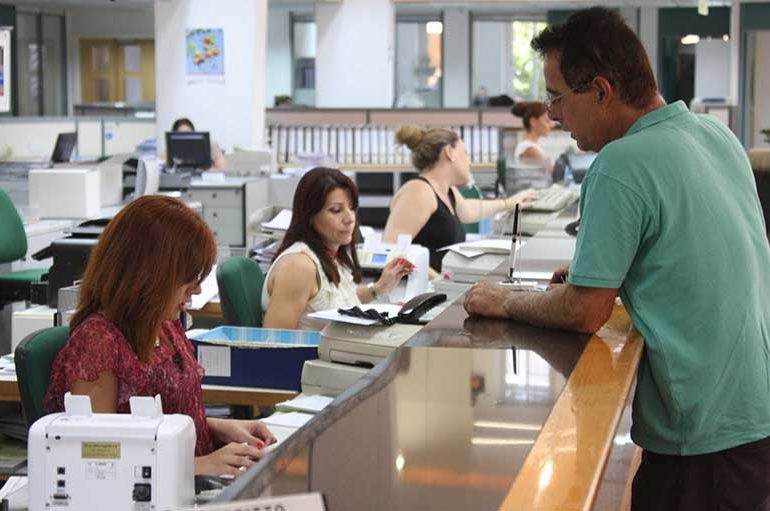Cyprus is ranked 27th out of 28 EU countries and 92nd out of 149 world countries in the World Economic Forum’s 2018 Global Gender Gap Report.
The Report benchmarks 149 countries on their progress towards gender parity across four thematic dimensions: Economic Participation and Opportunity, Educational Attainment, Health and Survival, and Political Empowerment.
Economic participation and opportunity
According to the report, in 2018, 69.6% of Cyprus’ female population participated in the labour force, compared to 77.4% of the male population.
The earning income (PPP) for Cypriot men is €36,295 per year, while that of women is €24,140 per year.
The per capita GDP of Cyprus is €28,385.01.
Women are more likely than men to be unemployed in Cyprus, as 13.5%% of women are unemployed, compared to 12.6% of men.
Also, with a percentage of 23.8%, women are more likely to employed in a part-time job than men (17.9%).
Political empowerment
Cyprus was ranked 111th in the world for its percentage of women legislators, senior officials and managers, as women in these positions make up just 20.7% of the total.
Women in the Cyprus Parliament make up just 17.9%.
With two out of eleven ministers being women, Cyprus ranks 119th in the world for women in ministerial positions.
Educational Attainment
Things look a bit better for Cyprus when looking at education statistics, as the country is ranked first in the world in three categories regarding gender parity in education.
Specifically, Cyprus is ranked first in the world for its percentage of women who are enrolled in primary education (women=97.7%, men=97.1%), in secondary education (women=95.1%, men=94.2%) and tertiary education (women=69.4%, men=51.1%).
Despite the high number of women enrolled in education, the gap widens again when looking at percentages of PhD graduates and people employed in research and development.
According to the report, 0.4% of women in Cyprus hold PhDs, while the percentage for male holders of PhDs is at 1%. Also, among personnel employed in research and development, 42.6% are women.
The education gap also widens when looking at people 65+, as many older women in Cyprus were forced out or left school in an early age to care for their family.
Specifically, among people aged 65+, 37.1% of women completed secondary education, while the percentage for men is at 57.2%. Also, 5.4% of Cypriot women aged 65+ have completed tertiary education, compared to 15.1% of men.
Health
Women are expected to live longer healthy lives than men according to WEF, as the healthy life expectancy for women in Cyprus in 2018 is measured to be at 74.8 years. The healthy life expectancy for Cypriot men is 71.9 years.
Cypriot women (3.4%) are also less likely to die by non-communicable diseases than men (3.9%), by accidental injuries (women=0.1%, men=0.2%) and by intentional injuries or self-harm (women=0%, men=0.1%).
Family life and care
According to the WEF, the length of maternity leave in Cyprus is 126 days. In 2018, 72% of Cypriot women received wages during their maternity leave.
Women are more likely to get married younger than men, as the average length of single life of Cypriot women in 2018 was measured at 26.4 years of age, while the average length for men was at 29.3 years.
Also, 25.1% of Cypriot women were married by the age of 25 in 2018, compared to 11% for men.
World
Having closed more than 85.8% of its overall gender gap, Iceland holds the top spot in the Index for the 10th consecutive year.
Other economies in the top 10 include Nordic countries Norway (2nd, 83.5%), Sweden (3rd, 82.2%), and Finland (4th, 82.1%), as well as Nicaragua (5th, 80.9%), which rose one spot, overtaking Rwanda (6th, 80.4%), whose steady multi-year climb has come to a halt for the first time. The newest entrant to the top 10 is Namibia (10th, 78.9%), the second country from the sub-Saharan Africa region to do so.

108 years to close overall gender gap
Globally, the average (population-weighted) distance completed to parity is at 68.0%, which is a marginal improvement over last year. In other words, to date there is still a 32.0% average gender gap that remains to be closed. The directionally positive average trend registered this year is supported by improvements in 89 of the 144 countries covered both this year and last year.
The WEF estimates that the overall global gender gap will close in 108 years across the 106 countries covered since the first edition of the report. The most challenging gender gaps to close are the economic and political empowerment dimensions, which will take 202 and 107 years to close respectively.


See the full country report for Cyprus here.
Access the full report, infographics and more here.
To learn about the methodology, please click here.
Written by Stelios Marathovouniotis
Read more:
https://in-cyprus.com/women-underrepresented-in-cypriot-politics-wage-gap-remains-gender-equality-commission/






